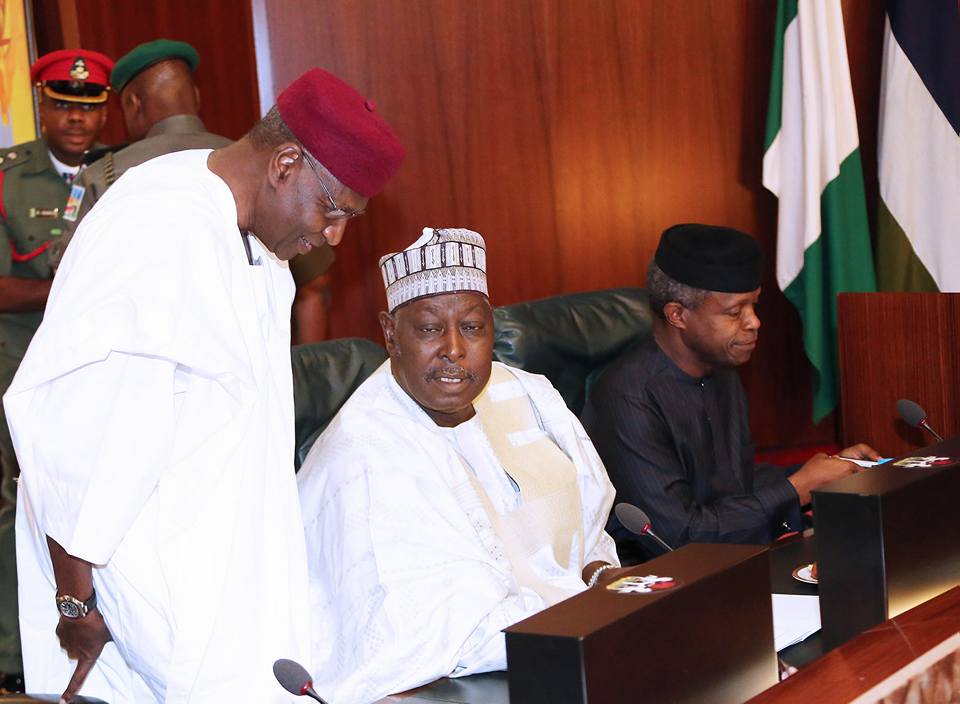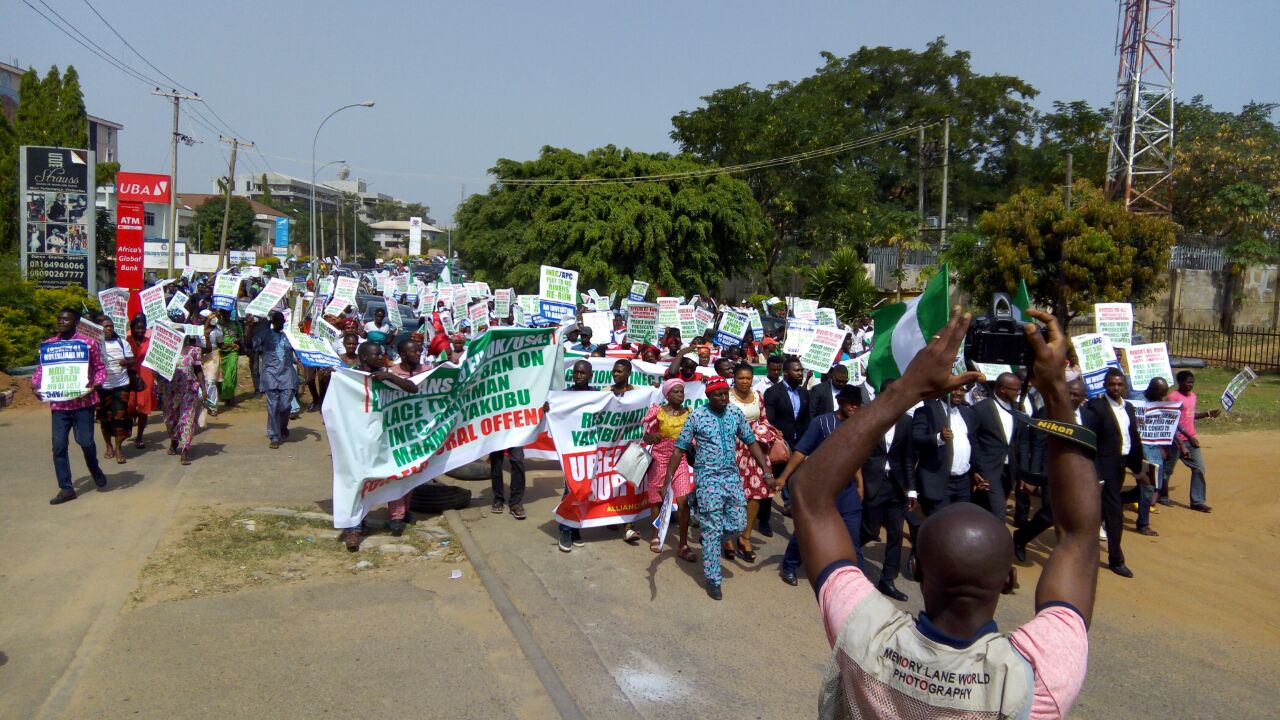BY ENYIOMA MADUBUIKE
On Thursday November 3, 2016, the Nigerian Senate faulted the draft Medium Term Expenditure Framework (MTEF) forwarded by the Ministry of Budget and National Planning for being incomplete. There are however key takeaways from the document currently before the Senate.
The Fiscal Responsibility Act makes it mandatory for the Federal Government to prepare a Medium Term Expenditure Framework every year. It is an integrated economic and fiscal strategy plan that sets out the country’s macro-economic framework and the government’s projections for the next three financial years and an analysis of the projections for the preceding three financial years. Despite the absence of essential documents, there are key takeaways from the available document as we are given a glimpse into the mind of the Federal Government as it relates to our economy.
1. 2016 has not been a good year
Advertisement
Yes, like this was not already obvious for a lot of Nigerians. However, seeing the figures helps to make the picture a lot clearer. The economy recorded a negative growth of -0.36% in the first quarter of 2016 resulting in Nigeria’s worst quarterly growth rate in over a decade. Inflation index went up to 16.5 as a result in the pressure on foreign exchange, rise in electricity tariffs, and petrol and food prices. Unemployment rate increased from 10.4% in fourth quarter of 2015 to 12.1% in 1st quarter of 2016 while underemployment rate rose to 19.1% in the first quarter of 2016 from 18.7% in the last quarter of 2015. Foreign direct investment has fallen from $2.27 billion in 2014 to an estimated $0.17 billion in the first quarter of 2016. What a year!
2. Nigeria has a public debt stock of about $61.45 Billion as at 30th June, 2016
This clears out in the short term the answers left unanswered by the honourable minister of Budget and National Planning at NESS 22 a few weeks ago. More interesting is the fact that the external debt stock which refers to the amount of the debt gotten from outside sources in dollars is about $11 Billion while the domestic debt stock which includes debts sourced internally such as Naira bonds, outstanding contract payments etc is about $50 Billion. It is clear that government has in the past few years favoured sourcing debt internally especially through its bond issuances rather than externally. Although this has led to the development of the Nigerian bond market, the relatively favourable returns for investors from these government bonds have affected the availability of finance for the real sector. Banks and investors have preferred to invest in Government bonds rather than lend to small and medium scale enterprises.
Advertisement
3. Nigeria intends to tilt more towards external borrowing
The need to free up domestic resources for private sector investment has informed the move to shift debt management strategy towards increased external borrowing. In light of the state of the economy today, this move is sensible for the short term as inflow of foreign currency will assist in reducing the demand for forex in the Nigerian market. Long term however, the inherent foreign exchange risks which may mean using more resources to repay or refinance the debt can be mitigated if government ensures as it has laid out in the document that it utilizes the debts for critical capital projects that have potentials to enhance repayment of the debt.
4. The 2nd Niger Bridge is on course for completion…hopefully
Government is looking in the near term to focus the bulk of capital spending on completing ongoing capital projects. This is good news for all contractors currently engaged by the Federal Government and for the economy as money gets pumped into it through the disbursements for these projects. Just to note in particular that the draft MTEF highlights the completion of the second Niger Bridge as a critical capital project.
Advertisement
5. Fist up to girl power.
The MTEF states the drive of government to pursue gender-sensitive job creation social intervention schemes through cooperatives and cheap long term financing for female enterpreneurs and artisans. Women should watch out to take opportunities of these initiatives as they arise. This support is stated to be made available to encourage entrepreneurship and innovation among young graduates.
6. Crude oil earnings are still important
As at middle of the year, total revenue was more than 50% less than revenue projected in the 2016 budget. What is interesting is that despite the lower-than-projected oil production, oil revenue actually outperformed the projection for the middle of the year. The letdown in revenue came from the non-oil revenue sources like taxes from the non-oil sectors and independent revenue from Government owned enterprises and revenue generating MDAs. In addition, earnings from crude oil still make up over 45% of projected earnings from the Federal government every year. It is important that while the long term diversification strategy is employed, government fastracks the deregulation of the downstream sector to optimize revenue generation from the Niegria’s oil sector.
Advertisement
7. Where did all the money go?
It is curious that the government overshot its budget for the payment of Salaries, Pensions and overheads as at June 2016. It states that debt service for the same period has been largely covered. The state of the economy will make us ask the question: where did all that money go. Likely destinations include the increased fuel prices, increased food prices, increased prices of imported products which constitute a large percentage of what Nigerians use, increased school fees. That must be where all the salaries and pension payments went. Do I hear the Nigerian Labour Congress calling for an increase in the national minimum wage?
Advertisement
Enyioma Madubuike is a Lawyer, writer and entrepreneur based in Lagos, Nigeria.
Advertisement
Add a comment






